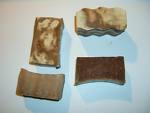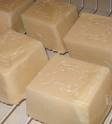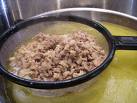Don’t yuck, beef tallow really makes good soaps
If you are one who likes to eat beef, but ‘yuck’ at the whole business of beef tallow, think again. Beef tallow really helps with soaps. You believe it or not, soap manufacturers make most of their good soaps in the market using beef tallow. If you look into your soap or some other personal cleansing product, you may find ‘Sodium Tallowate’ in the ingredients list. If you ever looked at and wondered what it is, it is the byproduct of mixing lye with tallow or beef fat. And it is not as harmful or unhygienic as you deem it to be.
Why is beef tallow used in soaps? The reasons are aplenty. First and foremost, it is one of the ingredients of good old fashioned soap making. Second, it is one of the harder oils which make white soap that creates good lather. Third, it is cheap, readily available and makes a really good soap that cannot be duplicated by vegetable oil soap. However, beef fat should be rendered into tallow to be used in soaps.

Beef tallow and soap making myths: A massive number of people believe that soaps with beef tallow as ingredient are some of the worst kinds of soaps in the market. This is wrong. Beef tallow is better than many synthetic and chemical ingredients added to soaps by manufacturers. Another myth is, tallow soaps clog skin pores and cause allergic skin conditions. This is not the case, really. Many chemicals in the soaps do so. Many consumers also assume that tallow soaps are of low-quality and damaging to compared to good, factory-made soaps. This is false because many manufacturers of commercial personal care products use animal fat as a primary ingredient. So, do not associate beef tallow soaps with low quality soaps.
Nature of beef tallow soaps: Tallow gives a nice rich creamy lather and good conditioning properties to your soaps. Added to this, it gives hardness to the bar, facilitating longer use. It is better to prefer a soap that has the right combination of soap making oils (like vegetable oils or fragrance oils) along with tallow. This is because tallow is a harder oil and does not clean well even if it produces good lather. Another big disadvantage is, you would not prefer a tallow soap if you are an animal activist, pure vegan, PETA member, or someone who just feels ‘yuck’ to use a soap that has beef tallow in it. On the other side of the spectrum, most of the tallow soap users tend to love the bar and use it regularly.
Making beef tallow soaps: Making tallow soaps is easy if you know how to render beef fat or suet and then know the basic rules of soap making. Tallow is ideal for making white soaps that give rich lather. A basic white soap recipe would normally include 35% beef tallow, 30% coconut, 30% lard and 5% castor oil. Sometimes refined Shea butter can be added to the basic white soap for added advantage of lather.








